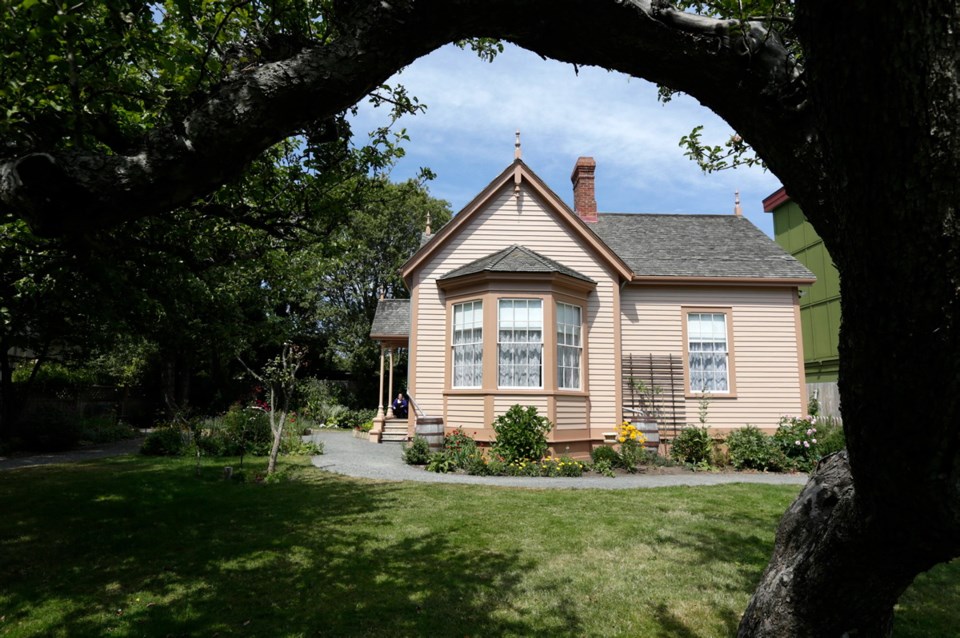Heritage advocates are worried that if the financially strapped Land Conservancy sells one of its heritage properties, the rest could end up on the market as well.
TLC’s management, however, says it is doing what it can to preserve its heritage holdings, including crafting a proposal that would allow it to retain Ross Bay Villa and Abkhazi Gardens.
Top of mind is a $1.6-million offer, approved by TLC’s board, for Binning House, a national historic site in West Vancouver. That proposal goes before the Supreme Court of B.C. in Vancouver on Nov. 18.
Binning House, designed in 1939 by Bertram Charles Binning, is one of seven heritage properties owned by the TLC, which is now under protection from creditors. The house is considered an early example of the Modern architectural movement in Canada.
“My concern is if it sells, then there’s no protecting any of the other heritage properties,” said Stuart Stark, a heritage consultant who sat on TLC board for a decade until 2008.
“House of cards. They are all going to fall.”
Selling the house would be a “moral outrage,” he said.
But John Shields, TLC’s new manager, said the intended purchaser has deep pockets and wants to restore the house and put his Binning collection of artifacts in it. “We, on our side, are pretty excited that this is a really good thing for the heritage movement,” Shields said.
Although the potential buyer wishes to remain anonymous, Shields said a message has been sent through his lawyer.
“We need to be able to assure not only the judge but the public that this sale is in the public interest and conforms with all the requirements of the Charitable Purposes Act.”
TLC knows the identity of the possible buyer, he said.
TLC’s portfolio of 50 properties includes untouched ecologically sensitive areas and heritage properties, with total value exceeding $40 million.
It owes $7.5 million to creditors and has put a Sechelt development site and a lot next to Abkhazi Garden on the market.
A monitor is working with TLC to create a plan to get the non-profit organization on its feet and running in a sustainable way.
Stark is also concerned about the meticulously restored 1865 Ross Bay Villa, once home to Francis Roscoe, who served as a member of Parliament, supported B.C. joining Confederation, and advocated for the Canadian Pacific Railway to be built across Canada as promised.
Public and private funding totalling hundreds of thousands of dollars, donations of artifacts, and about $1.4 million worth of volunteer time has gone into the Victoria house, Stark said.
It is one of a small number of 1860s-era houses in the capital region. Stark chose that property to receive a $10,000 grant through a heritage award.
Shields said the TLC is drawing up a recommendation for city hall for a density swap for the villa and Abkhazi Garden. Each property allows for a higher density, or development, than exists: Abkhazi is zoned for a dozen townhomes and the villa sits on two lots. The idea is that the unused density could be purchased by a developer for other property. The revenue would go to TLC, which would keep its properties, Shields said.
This kind of density swap practice is used in Vancouver and Burnaby, he said.
Stark said he is among a group holding mortgages on another TLC property, the 32-acre Keating Farm Estate in the Cowichan Valley, considered to have heritage, ecological and agricultural value. Its heritage buildings include the main 1880s-era farmhouse with a unique great hall.
It was not unusual for the TLC to find private backers to provide mortgages on their properties. Stark is owed $40,306 and has received interest-only payments since spring 2012.



